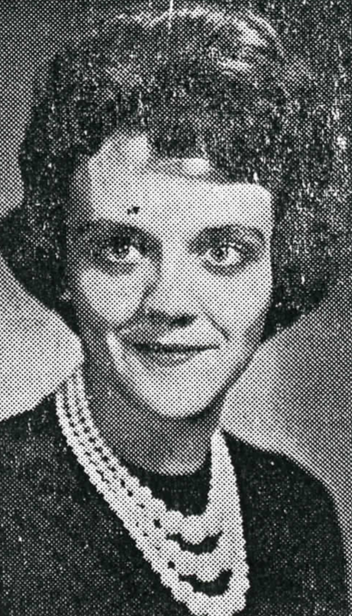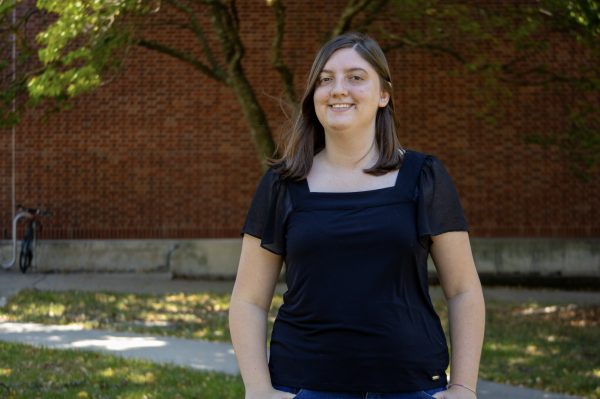After decades of law work, the Honorable Judge Rosemary Shaw Sackett died Sept. 2, leaving a long-lasting legacy.
Throughout her life, Sackett worked with the law. From the age of eight, working in her father’s office to her retirement, where she helped with high school debate teams and mentored young people interested in the profession, she involved herself in the system and made sure there would be others to follow in her path.
Sackett graduated from Drake University and took the bar exam in 1963 as the only woman present in the crowd of future lawyers. After serving as a county attorney for two decades, she was appointed by Governor Terry Brandstad to the Iowa Court of Appeals.
“An example of real diligence and professionalism, someone who was grounded in making sure that justice is done,” Drake President Marty Martin said of Sackett. “She was driven by care and concern for others.”
Once appointed Chief Judge of the Iowa Appeals Court by her peers, Sackett wrote dissenting opinions attempting to look beyond the facts of a case to its possible consequences. In a case examining a video of a drunk driver, she compared a video to spoken testimony, and in a case where a stay-at-home father’s custody was limited, she declared the court’s decision to be rooted in sexism.
Despite her qualifications, Sackett was never appointed to the Iowa Supreme Court. In her essay reflecting on her life, she recalls being told that she wouldn’t be able to care for her children if she took the job, an assumption that she adamantly rejected. In her essay reflecting on her career, Sackett mentioned her belief that criticizing the lack of women present in the Iowa courts might not have helped her advance, though she thought that she helped more women get the positions they deserved.
Sackett’s passion was for family law, and she wrote about the bond between parent and child in a paper on the rights of disabled parents. Instead of advocating for taking a child from parents who couldn’t provide for it due to lack of resources, she instead supported measures where the state would provide those resources, allowing the relatives to stay together.
“She understood what children go through in the juvenile justice system and applied common sense and compassion in her decisions.” Recalled Andrea Charlow, a professor at Drake University and a friend of Sackett’s. “I regularly used some of her decisions and dissents to teach my students judicial integrity.”
Sackett viewed diversity in the courts as beneficial, believing that experiences could bring new light to cases, but didn’t want decisions about appointing judges to be made on the basis of sex. Rather, she wanted the best judges appointed and believed that opening the courts to more people would ensure that that happened.
When not working for the Court of Appeals, Sackett worked with the Okoboji Protective Association, an organization dedicated to preserving Lake Okoboji, a lake in northwest Iowa. The lake later provided inspiration and a setting for her two novels, “A Lake in Dickinson County: Lake West Okoboji,” a romance novel, and “Bozer Bunny Comes to Okoboji,” a children’s novel.
Sackett also passed down her expertise in the law to students with a passion for debate. She helped start a mock trial program at the high school in her hometown of Spencer, Iowa.
“Judge Rosemary Sackett was a wonderful role model for students,” said Jan Myers, who coached the school’s debate team. “We were so fortunate to have a person of her caliber, intellect, kindness and character influence our young people.”
Years after her graduation from the university, Buena Vista University awarded her an Honorary Doctorate in Public Service for her work. Sackett presented the 2006 commencement address on the challenges faced by the university and what it meant to judge others and be a judge.
“I believe we shall live in a better world if each of us in making judgments and decisions looks for understanding, not condemnation, forgiveness, not revenge, love, not hate.”
Sackett said in her commencement speech. “And if we remember to attempt to seek solutions through study and debate, not by application of our own perceived notions of rightness. We must detest acts of violence but possess the wisdom to have compassion for the actor and to seek reasons for his or her behavior.”
Interested Drake students can read some of her papers courtesy of the online archives or contact the archives at the University of Iowa for more of her decisions.








